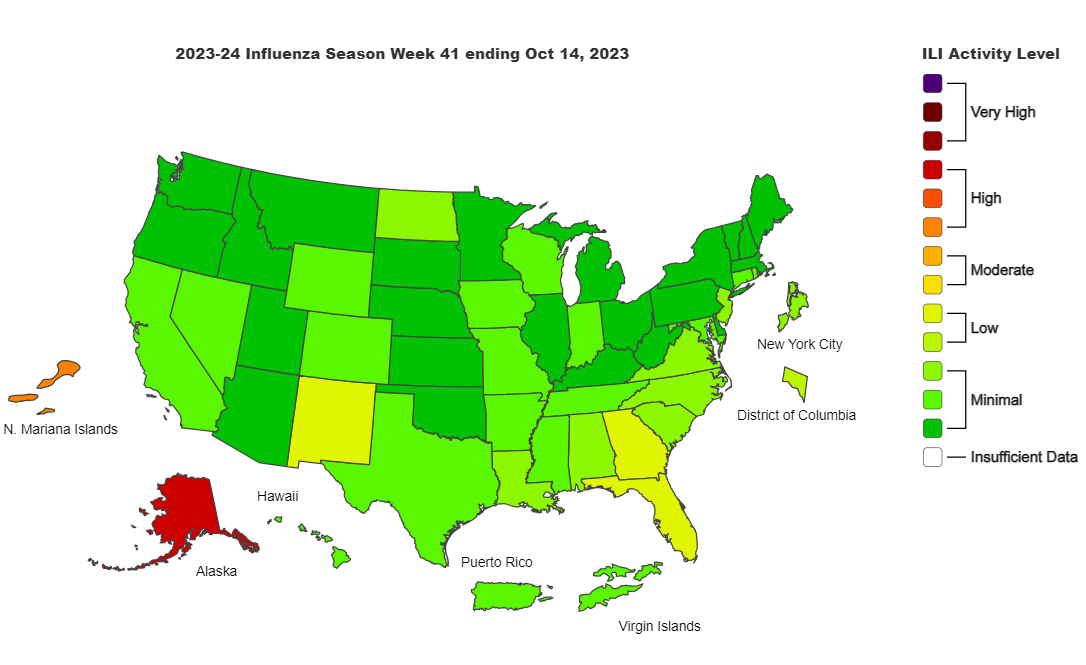Yes. Annual flu vaccines prevent hundreds of thousands of cases of flu and save thousands of lives every year.
The answer to the question “how well do they work” isn’t black and white because it changes from year to year, and even sometimes within a season. But even in a year when the flu vaccine *doesn’t* work particularly well, it still reduces the risk of getting the flu by 40% or more. That is to say, there are 40% fewer flu cases among people who got vaccinated compared to those who did not.
In seasons when the vaccine is well-matched to the circulating strains of flu, vaccination can reduce your risk of catching the flu by 60% or more. We’re currently just at the beginning of flu season, so it remains to be seen what strains will be circulating once things really get going.

The map shows influenza-like illnesses at the state level for last week. We often see flu activity increasing in the southern states first, so those yellow-green colors in Florida, Georgia, and Arizona indicate that we are on the cusp of flu season beginning in earnest.
Getting a flu vaccine also reduces the risk of hospitalization or death, if you do get the flu. A 2018 study showed that adults who were vaccinated for flu had 82% less risk of being admitted to the ICU. A 2021 study showed that vaccinated adults who were hospitalized for the flu were 31% less likely to die of it. A 2022 study showed that flu vaccination reduced children’s risk of life-threatening influenza by 75%.


